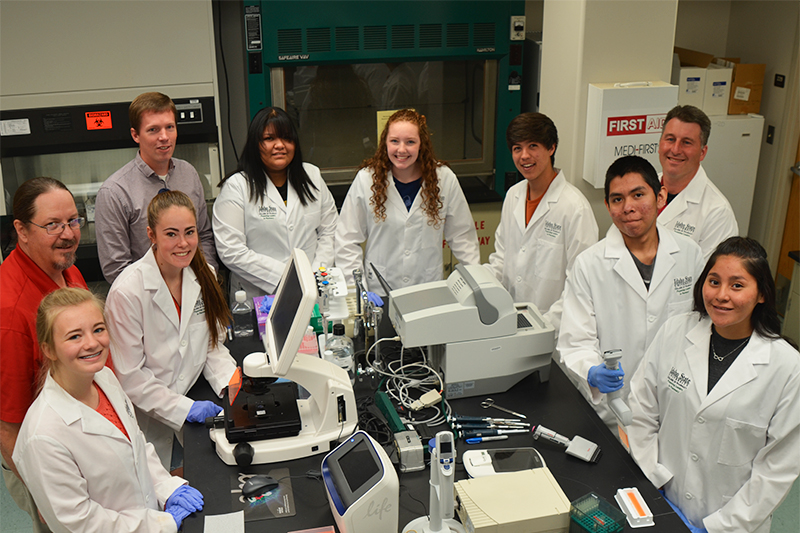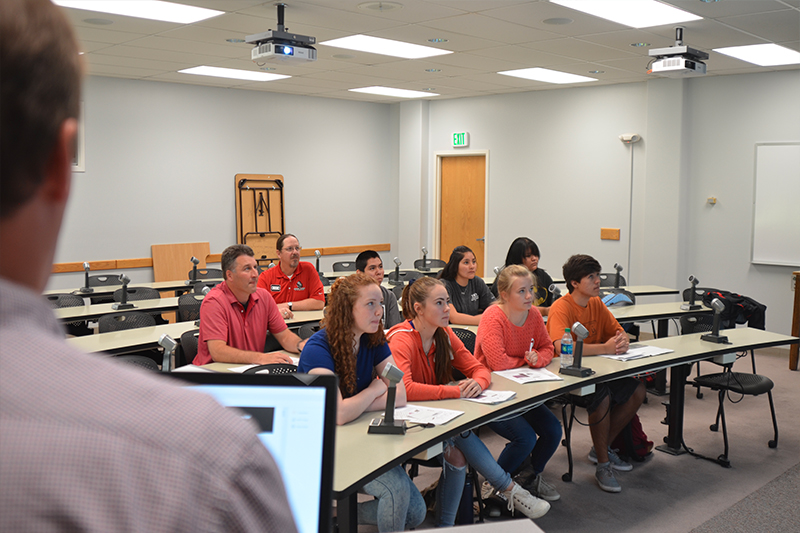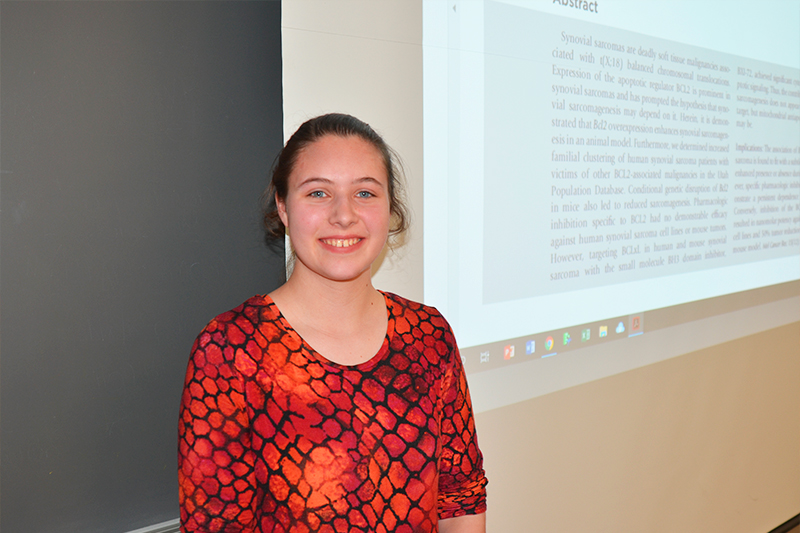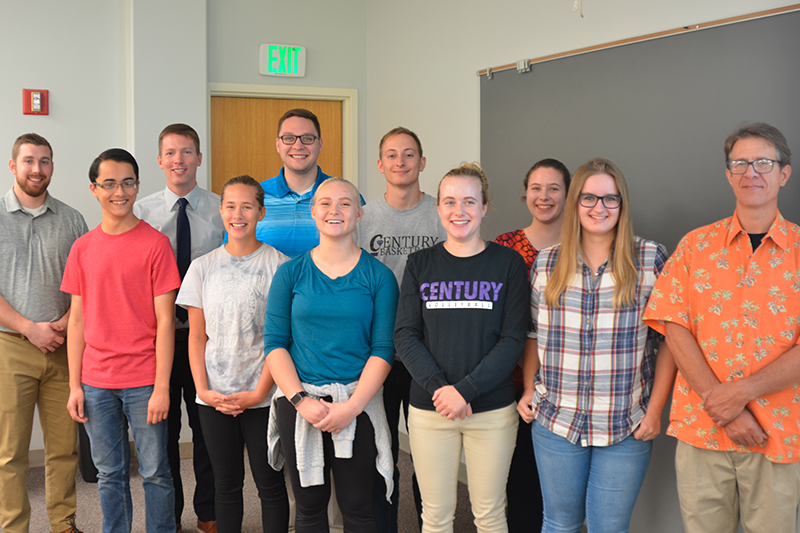Fourteen East Idaho high school students become biomedical research interns for ISU’s College of Pharmacy

East Idaho high school students from the Pocatello, Chubbuck, Blackfoot Fort Hall, and Marsh Valley areas became biomedical researchers for a two-week internship at Idaho State University’s College of Pharmacy during the month of June. The project, coordinated by Dr. Jared Barrott, assistant professor for biomedical and pharmaceutical sciences, was an effort to stimulate interest in the field of biomedical research and the University in general, Barrott says. The students are working with Barrott in classrooms and laboratories, studying tissue samples, performing drug viability experiments, and in workshops designed to teach them how to read, write, and present science.
To find interested student interns, Barrott conducted a survey among more than 100 high school students, in grades 10-12, in the Pocatello/Fort Hall area, who were taking upper level biology courses. The students were asked demographic questions, and about their attitudes towards science. “My end objective is to track students over the course of 5 years to see if participation in this internship affects their attitudes towards science, go-on rates, their ability to get college scholarships, and choosing STEM fields as a major in college. The participants will be compared to their fellow classmates who did not participate but demonstrated similar demographics and attitudes towards science, hence the survey,” says Barrott.
The first session, June 4-15, included seven students, three from Shoshone Bannock High School, two from Pocatello High School, and two from Century High School. The second internship session, June 18-29, also included seven students, three from Century High School, two from Pocatello High School, one from Highland High School, and one from Marsh Valley High School. Barrott says the internship had two parts, first, how to conduct biomedical and pharmaceutical research, and second, how to write and present a research project.
The students all say they enjoyed their time as research interns, and a few were surprised at the level of information they were able to learn in just two weeks. “The new knowledge that I took away from this internship was, that I learned a ton of new vocabulary in both the research paper and when we were working in the lab. I also took away the importance of how synovial sarcoma cancer cells metastasizes, and what synovial sarcoma cancer is. This research experience has changed my perspective on science in several ways. One, this experience has allowed me to see that you can never learn everything when it comes to science. Two, I learned that it’s okay to question yourself and it’s okay to ask for help on things you’re not certain about. Three, we all make mistakes but it’s okay, because if you make a mistake you’ll learn from it and perfect it. And four, I learned that you can find science in basically everything. Whether it be the photosynthesis in plants outside or cooking and making chemical reactions,” says Tia Buckskin-Smith, a student at Shoshone Bannock High School.
Another student, Adler Patch, from Century High School says, “I knew research takes a long time and mistakes happen, but I learned that working with others is entirely different than working alone. It’s nice to have someone to talk to and even have guidance for certain procedures. It made me appreciate communication between my peers more, and this lesson can be applied to other areas of life as well!”
This summer’s program is a pilot study, and Barrott says he hopes to secure funds to help continue the program from the National Institute for Health (NIH). Barrott says, “I am working with the College of Education at ISU to submit an NIH Scientific Education Partner Award, which will allow for expansion of the program to other faculty and departments, as well as provide financial support to our graduate students during the summer months. The award will provide $250,000 per year for 5 years. I think we have a strong argument based on Idaho's national ranking that these outreach programs are much needed in the state.”
The College of Pharmacy’s guiding documents highlight advancing research efforts as a key priority, says Dr. Brooke Buffat, associate dean for student affairs. Buffat says “We are excited about this program, since it is an excellent opportunity for high school students in our community to broaden their understanding of the value of biomedical research. Dr. Barrott is passionate about the kind of research that makes a difference and is a role model for his interns. It is exciting to see how the internship and pilot study are strengthening the College's research mission.”



